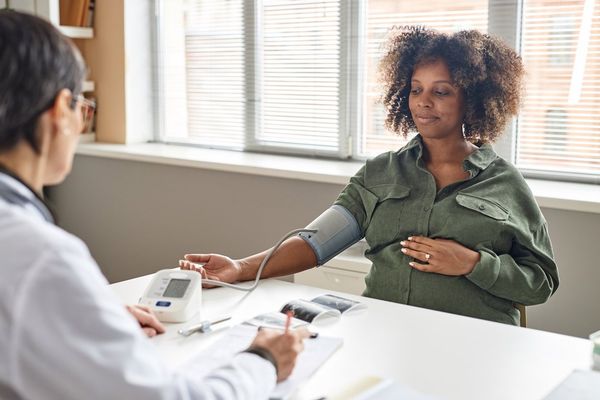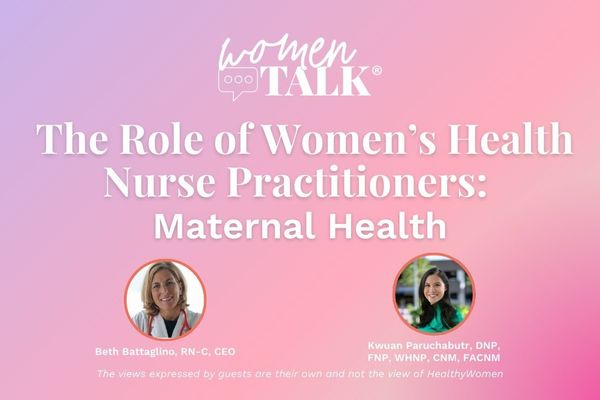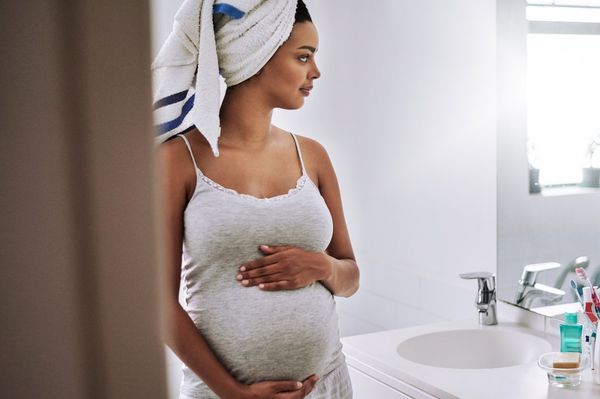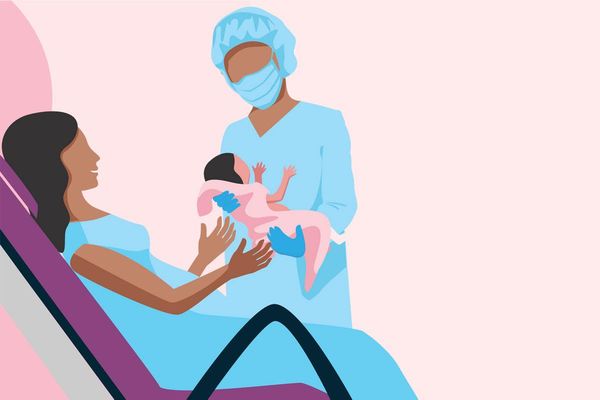During what's technically your second week of pregnancy, your body still has not conceived. However, this is the time you're most likely to ovulate, which is when your egg will be released and may be fertilized.
Tip of the week:
Did you know that certain lubricants, and even saliva, can hinder your ability to get pregnant? These substances can slow sperm significantly, so your best bet may be to take it slow with foreplay and let your natural lubricants start to flow. If you need the extra help, look for a water-based lubricant that clearly states that it's safe for conception.
At week two, your menstrual period has ended and your uterine lining is thickening as your egg ripens, getting ready to be released into your fallopian tube. If all goes according to plan, toward the end of this week your egg should be perfectly positioned for fertilization.
Fertilization is the moment when the sperm makes its way to your egg, at which time a very important factor is determined. While it will be months before your health care professional is able to tell you if you'll be having a boy or a girl, your baby's gender is set as soon as the sperm completes its job.
Here's how it works: A total of 46 chromosomes will make up your baby's genetic material, and two will determine the sex. Your egg has an X chromosome, while sperm can carry either X or Y. If the sperm that gets through has an X chromosome, your baby will be a girl, but if it carries a Y, you'll have a boy.
Now the trick is getting that sperm to your egg. Conceiving can be a little trickier than simply having sex—though, as we all know, that's all it takes sometimes. Some experts recommend having intercourse every other day during this time to optimize your chances of conceiving. Knowing your ovulation cycle and timing intercourse around it are keys to success.
You now know that ovulation generally occurs toward the end of the second week of your cycle, but the exact timing varies from woman to woman. Signs that you're ovulating include thin, slippery discharge, similar to the consistency of egg whites, and some women can feel their eggs being released. Typically, it feels like a slight twinge of pain on one side of the lower abdomen. In addition to becoming familiar with your cervical mucus, you may want to track your temperature throughout the month because it generally rises a small amount just after ovulation.
Some women prefer to use an ovulation kit. This is a daily at-home urine test that can be purchased at the drugstore to measure your levels of luteinizing hormone, which sends a signal to your ovaries to release an egg. To best detect the amount of this hormone in your urine, you should begin testing nine or 10 days after the first day of your last menstrual period.
Read more:
Maintaining Passion While Trying to Conceive
Support for Fertility Challenges
Should I stop taking my antidepressant now that I'm trying to get pregnant?







